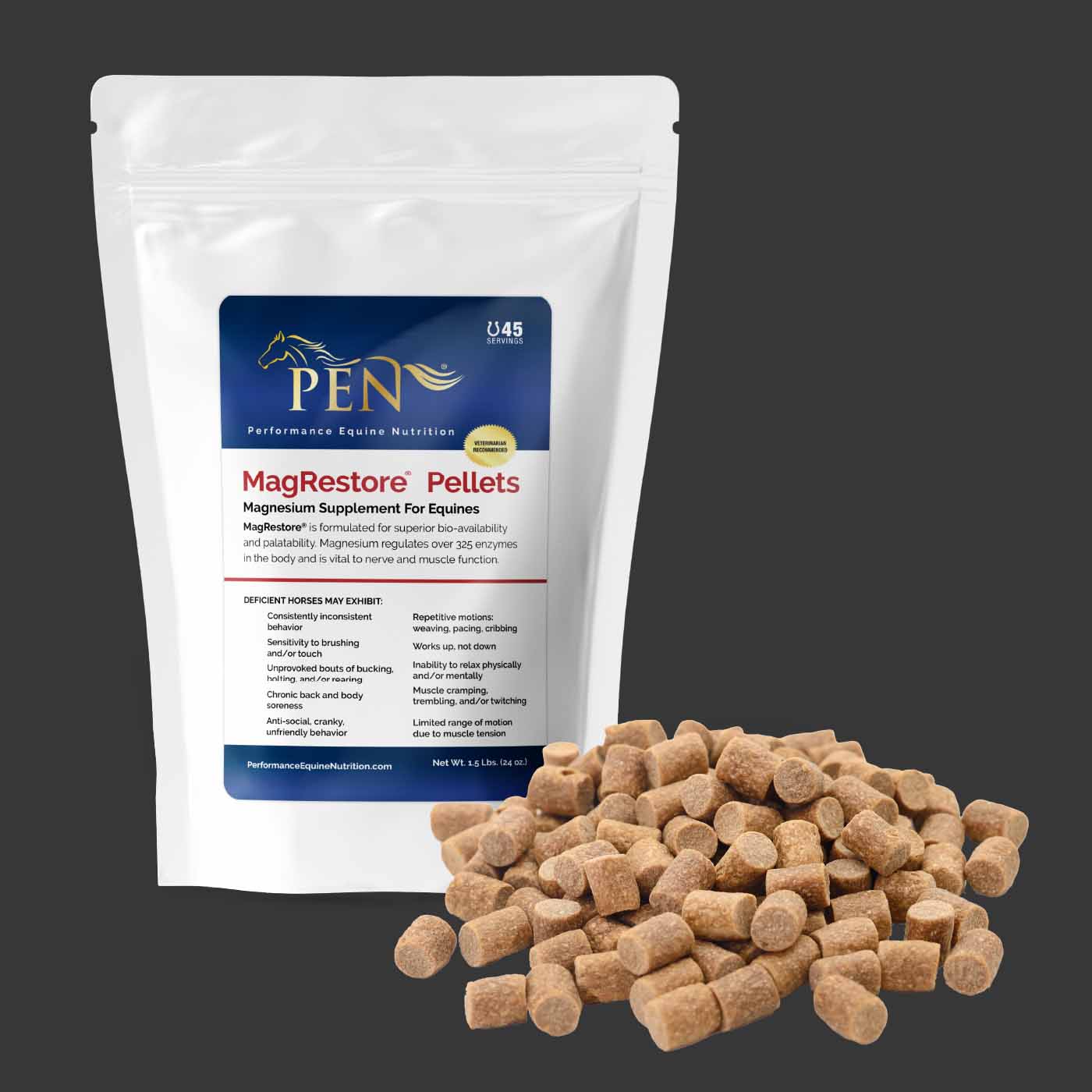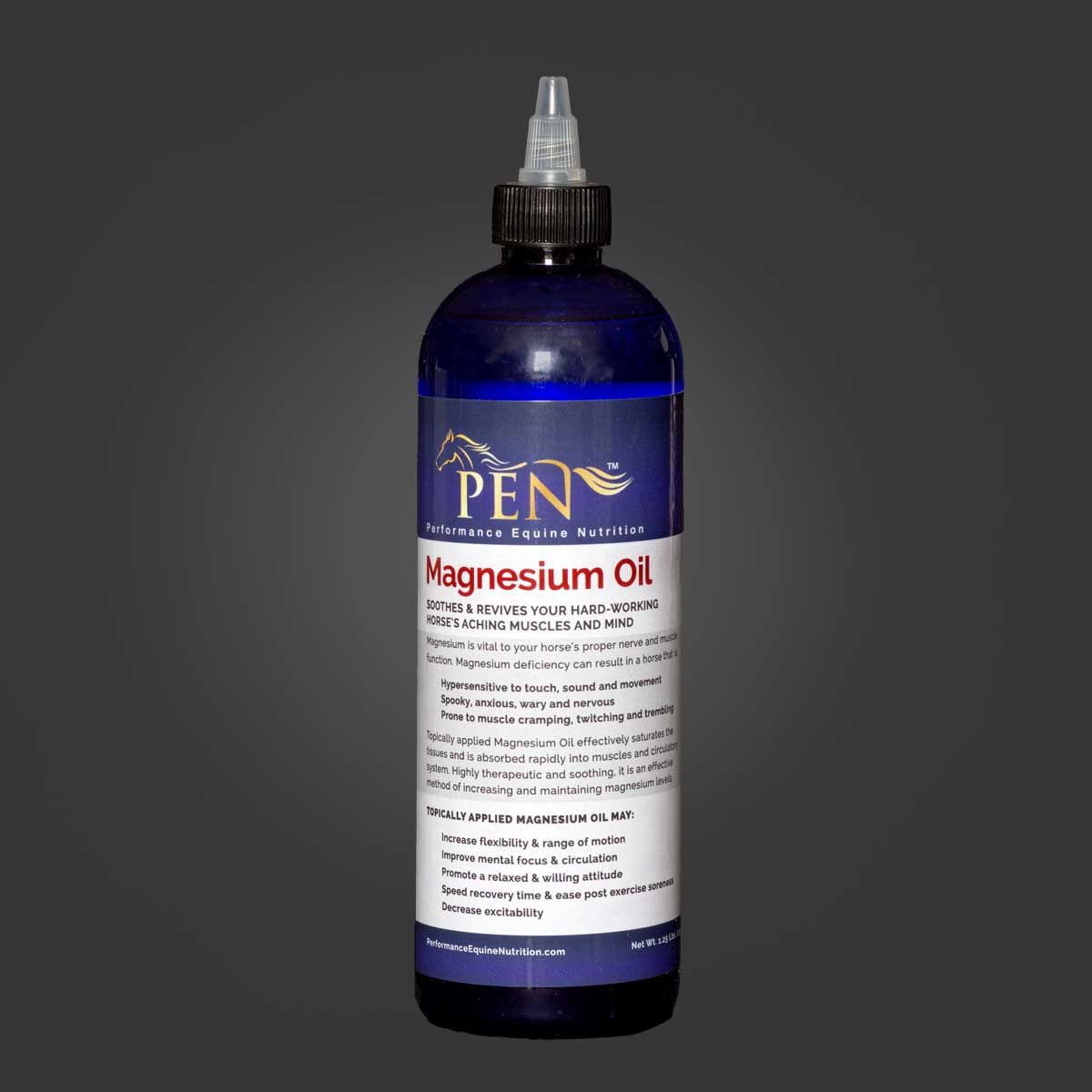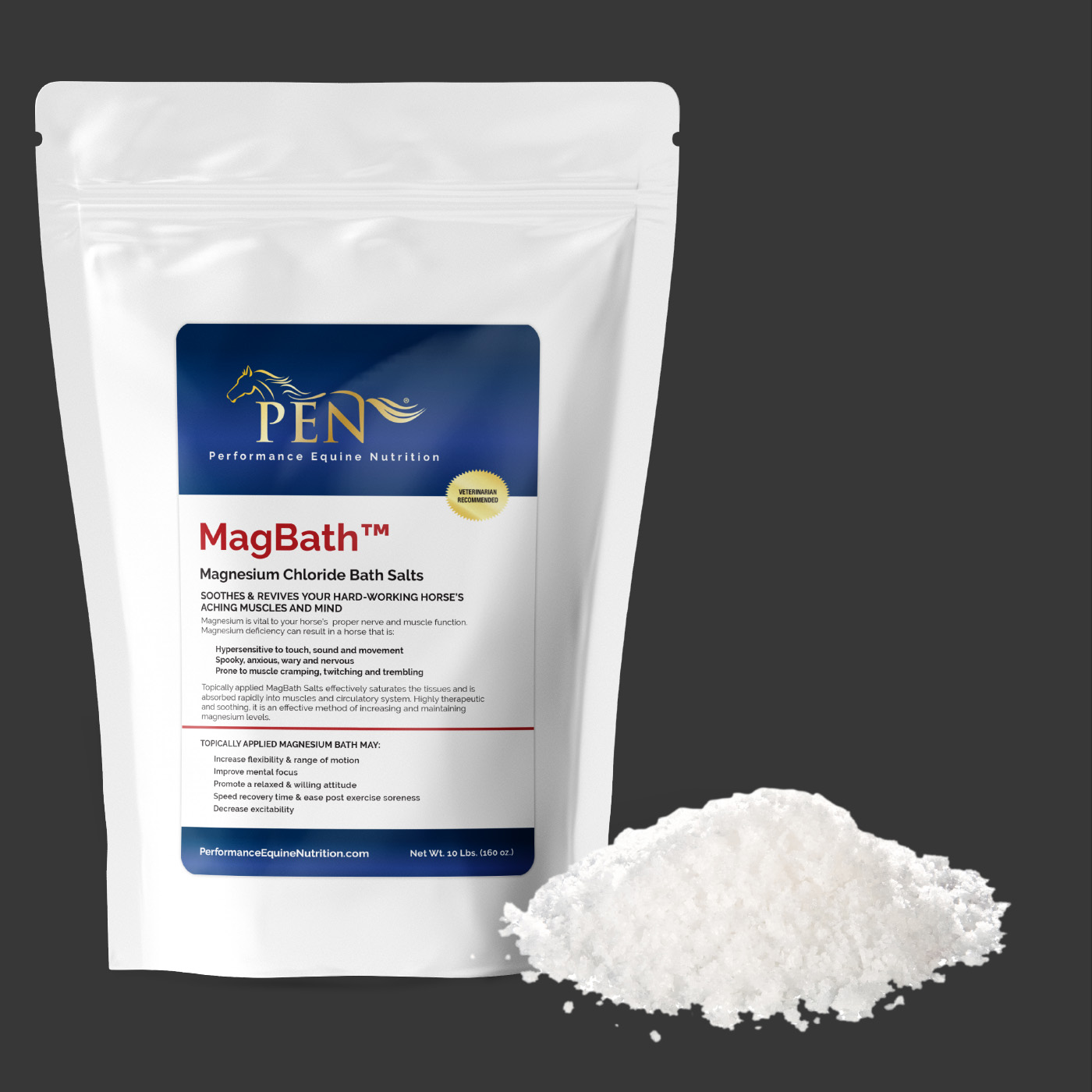
Magnesium: The critical mineral that keeps horses calm and relaxed
When a horse gets excited, its body uses magnesium to calm down and relax. Magnesium plays an important role in nerve and muscle function. Horses deficient in this vital mineral often show signs of nervousness, wariness, excitability, jumpiness, tight sore backs (not related to saddle fit), muscle tremors, and hypersensitive skin – our products can help.
Magnesium Supplements by Performance Equine Nutrition

MagRestore
A vital mineral for performance horses. Learn more

Magnesium Oil
Absorbs rapidly into your horse’s muscles and circulatory system. Learn more

MagBath
Use during times of heavy work or stress. Learn more
Try MagRestore in your practice
Apply for DVM pricing today.
